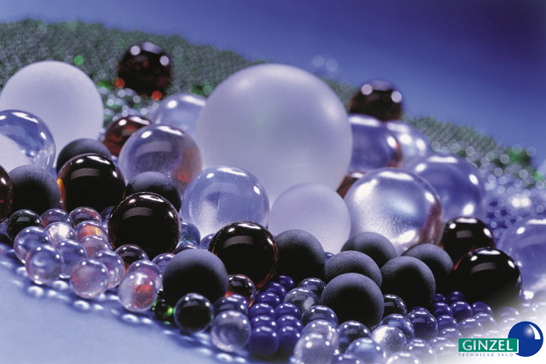Glass beads made from sodium-potassium glass are widely used as homogenizing and grinding media, known as inert fillings for bead mills, in the paint and coatings industry for mixing and homogenizing solutions and suspensions during the production of coatings.
Grinding beads are most commonly made from crystal glass with a higher degree of wear resistance. Custom grinding beads can be produced from special glass types where customer requirements such as higher specific gravity, bead color, wear resistance, or thermal shock resistance are prioritized.
| Usage: | in the paint and coatings industry, fillings for bead mills | |
|---|---|---|
| Size: | 1–10 mm | |
| Tolerance: | from +/- 0.1 to +/- 0.2 mm depending on size and type | |
| Surface: | glossy | |
| Glass: | Specific gravity: Coefficient of thermal expansion: Bulk density: Mohs hardness: Vickers and Rockwell hardness: Modulus of elasticity: Young’s modulus E: Hydrolytic class: Acid resistance according to DIN 12116: Resistance to hydroxides according to ČSN ISO 695: | 2.54 g/cm3 9.1 x 10-6 K-1 1,485 kg/m3 6 970 – 1018 kp/cm2 7.75 MPa 78 – 85 GPa III. III. A-1 |
Generally, glass beads are used for mixing and homogenizing solutions and suspensions.
The traditional use is mixing paints in so-called bead mills. Other uses include ink production, graphite homogenization (pencil lead). They are also widely used in the pharmaceutical industry for producing medicines and ointments.

